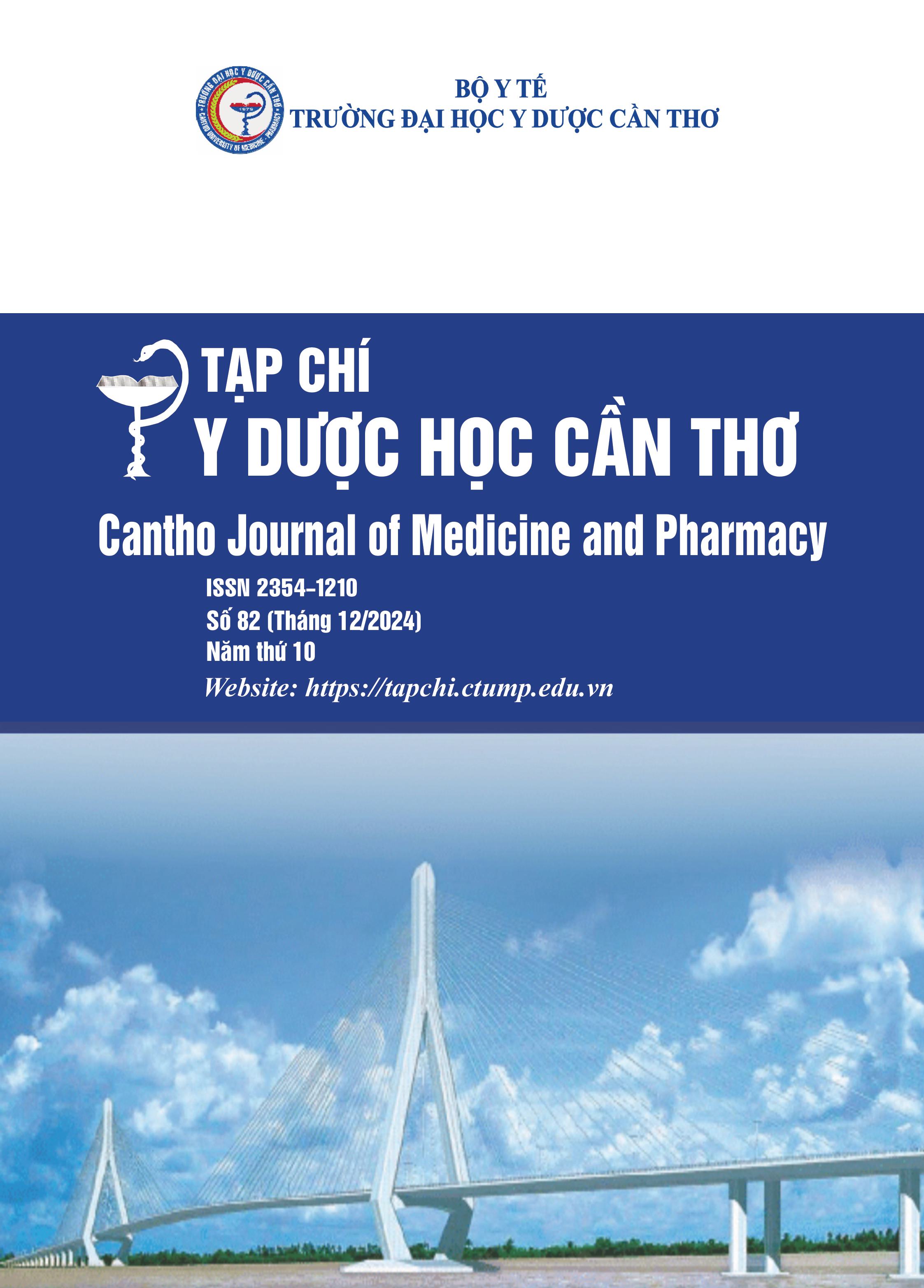EVALUATION OF THE IN VITRO ANTIOXIDANT ACTIVITY OF SOME ARTICHOKE PREPARATIONS USING THE DPPH ASSAY
Main Article Content
Abstract
Background: Artichoke (Cynara scolymus L.) is a medicinal plant prioritized for strategic development and investment in Vietnam. Its chemical composition is predominantly polyphenols, which have been demonstrated to exhibit strong antioxidant activity. In both domestic and foreign markets, numerous preparations containing artichoke leaf extracts available in various formulations. However, some studies indicate significant differences in polyphenol content among these formulations, which may influence their pharmacological effects. Objectives: To evaluate the antioxidant activity of artichoke preparations in vitro model using the DPPH assay. Materials and methods: 19 Artichoke preparations were collected from the domestic and foreign markets. Antioxidant activity was evaluated by DPPH free radical scavenging method. Results: There was a correlation between the concentration and antioxidant activity of the test samples with a correlation coefficient R² ranging from 0.984 to 0.998. Foreign formulations N.CP (1-8) had higher antioxidant activity than domestic formulations V.CP (8-16), except for formulations V.CP11, V.CP14-16. Conclusions: Antioxidant activity and IC50 (µg/mL) of 19 formulations were investigated compared to positive controls vitamin C and silymarin. The results indicate that most foreign formulations exhibit moderate antioxidant activity, while domestic formulations vary significantly in quality, ranging from no effect to relatively high activity.
Article Details
Keywords
Artichoke, antioxidant, Cynara scolymus, DPPH, polyphenol
References
10.1016/j.jff.2009.01.002.
2. FAOSTAT. Artichoke. Accessed May 13, 2022. https://www.fao.org/faostat/en/.
3. Panahi Y., Kianpour P., Mohtashami R., Atkin S. L., Butler A. E., et al. Efficacy of artichoke leaf extract in non‐alcoholic fatty liver disease: A pilot double‐blind randomized controlled trial. Phytotherapy Research. 2018. 32(7), 1382-1387, doi: 10.1002/ptr.6073.
4. Rangboo V., Noroozi M., Zavoshy R., Rezadoost S. A. and Mohammadpoorasl A. The effect of artichoke leaf extract on alanine aminotransferase and aspartate aminotransferase in the patients with nonalcoholic steatohepatitis. International journal of hepatology. 2016. 2016, doi:
10.1155/2016/4030476.
5. Gatmiri S. M., Khadem E., Fakhrian T., Kamalinejad M., Hosseini H., et al. The effect of artichoke leaf extract supplementation on lipid profile of chronic kidney disease patients; a double-blind, randomized clinical trial. Journal of Renal Injury Prevention. 2019. 8(3), 225229, doi: 10.15171/jrip.2019.42.
6. Shahinfar H., Bazshahi E., Amini M. R., Payandeh N., Pourreza S., et al. Effects of artichoke leaf extract supplementation or artichoke juice consumption on lipid profile: A systematic review and dose–response meta‐analysis of randomized controlled trials. Phytotherapy Research. 2021. 35(12), 6607-6623, doi: 10.1002/ptr.7247.
7. Walker A. F., Middleton R. W., and Petrowicz O. Artichoke leaf extract reduces symptoms of irritable bowel syndrome in a post‐marketing surveillance study. Phytotherapy Research: An International Journal Devoted to Pharmacological and Toxicological Evaluation of Natural Product Derivatives. 2001. 15(1), 58-61, doi: 10.1002/1099-1573(200102)15:1%3C58::AIDPTR805%3E3.0.CO;2-R.
8. Bundy R., Walker A. F., Middleton R. W., Marakis G. and Booth J. C. Artichoke leaf extract reduces symptoms of irritable bowel syndrome and improves quality of life in otherwise healthy volunteers suffering from concomitant dyspepsia: a subset analysis. Journal of Alternative Complementary Medicine. 2004. 10(4), 667-669, doi: 10.1089/acm.2004.10.667.
9. Abu-Reidah I. M., Arráez-Román D., Segura-Carretero A., and Fernández-Gutiérrez A. Extensive characterisation of bioactive phenolic constituents from globe artichoke (Cynara scolymus L.) by HPLC–DAD-ESI-QTOF-MS. Food chemistry. 2013. 141(3), 2269-2277, doi: 10.1016/j.foodchem.2013.04.066.
10. Nguyễn Thị Ánh Nguyệt, Nguyễn Minh Trung, Thi Đại Thạnh, Nguyễn Thiện Hải, Phạm Đông Phương. Định lượng polyphenol toàn phần trong các chế phẩm Actisô bằng phương pháp FolinCiocalteu. Nông nghiệp và Phát triển nông thôn. 2024. 1/2024.
11. Nguyen N. A., Le T. M., Nguyen H. T., Pham K. H., Truong H. P., et al. Method Development for Simultaneous Quantification of Polyphenol Compounds in Artichoke (Cynara scolymus L.) Leaf Dry Extract by UPLC-PDA. Tropical Journal of Natural Product Research. 2023. 7(10), doi: 10.26538/tjnpr/v7i9.22.
12. Kulisic T., Radonic A., Katalinic V., and Milos M. Use of different methods for testing antioxidative activity of oregano essential oil. Food chemistry. 2004. 85(4), 633-640, doi:
10.1016/j.foodchem.2003.07.024.
13. Marjoni M. and Zulfisa A. Antioxidant activity of methanol extract/fractions of senggani leaves (Melastoma candidum D. Don). Pharm Anal Acta. 2017. 8(8), 1-6, doi: 10.4172/2153-2435.1000557.
14. Yang M., Ma Y., Wang Z., Khan A., Zhou W., et al. Phenolic constituents, antioxidant and cytoprotective activities of crude extract and fractions from cultivated artichoke inflorescence. Ind Crops Prod. 2020. 143, 111433, doi: 10.1016/j.indcrop.2019.05.082.


